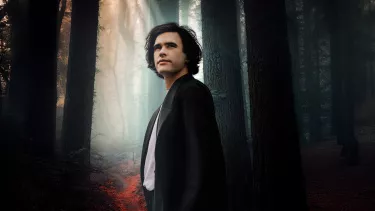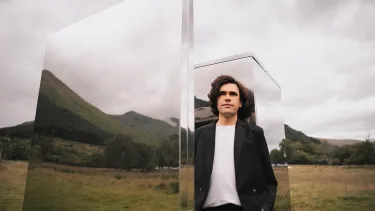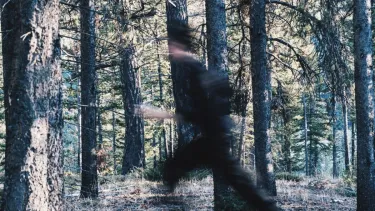How Scott Silven found The Lost Things
Published

The mentalist is back to blow our minds.
Scott Silven is giving magic a makeover. Gone are the corny coin tricks and rabbits out of hats. Instead, he prefers to weave his shows around stories and emotions, connecting with his audience on a deeper level. In other words, he’s not really a “magician”. He’s a mentalist, illusionist and storyteller. Not to mention an incredibly charismatic Scotsman.
This June, he is debuting a brand new concept, The Lost Things, right here on the Playhouse stage. It’ll be the first time audiences anywhere will see it. The new show explores the memories, people or places we’ve lost in our lives – and what happens when they make their way back to us.
Last time Scott performed here, he blew our minds with his show, Wonders. Our staff are still talking about it to this day. So we thought we’d pick his brain and find out what’s in store for us with his latest show. Read on below.
Where did the idea for The Lost Things come from?
“When I was a kid, I got lost in the woods behind my home in Scotland. At first, there was panic. But then, something shifted. The fear faded, and in its place came this overwhelming sense of wonder. I was alone, yes. But I was also completely present, wide-eyed, and alive to the mystery of where I was and what might come next.
That moment stuck with me. It made me realise that some of the most defining moments in our lives happen not when we know where we’re going but when we don’t.
The Lost Things is about leaning into that mystery. It’s about embracing the unknown, about the beauty that comes from letting go of control and allowing yourself to be surprised.”
What influences did you look to when crafting the show?
"Where The Wild Things Are was a huge influence. That idea of escape, not just physically, but emotionally. The way a child creates entire worlds to process what they’re feeling – that’s powerful storytelling. It taps into that childhood instinct of getting lost to find yourself.
Stranger Things also resonated deeply. Beyond the monsters and supernatural elements, it’s about kids navigating the messy, complicated space between childhood and adulthood. That feeling of being stuck between worlds. Where everything is bigger, scarier, and more magical, perfectly captures the emotional heart of The Lost Things.
And then there’s Steven Spielberg, whose work has always explored kids facing enormous challenges, whether it’s E.T., The Goonies. His stories are about more than aliens or dinosaurs, they’re about childhood, loss, bravery, and the beauty of wonder. He’s the master of balancing heart and spectacle, and that’s something I’ve always tried to emulate.
The Lost Things is the most personal and ambitious work I’ve ever created. It’s a journey into memory, identity, and the spaces in between.”
As the audience exits the Playhouse after the show, what do you hope they will feel?
“The Lost Things isn’t about flashy tricks or smoke and mirrors. It’s about you.
It’s a shared experience. A journey into memory, mystery, and connection. It’s about getting a little lost – on purpose – and realising that’s where the real magic happens.
It’s a reminder that life isn’t always about having all the answers. Sometimes, it’s about leaning into the questions.
And if people walk out of the theater feeling more connected to themselves, to the people around them, to the stories that shape their lives, then I know I’ve done my job.”
The Sydney Opera House audience will be among the first people in the world to see your brand-new show. How do you feel about that?
“It’s a dream.
When I brought Wonders here, and we sold out the run, it was already a career highlight. The Sydney Opera House is iconic. Not just architecturally, but in the stories it holds.
It’s one of those places that transcends being just a venue; it’s part of the global cultural consciousness. To now return with The Lost Things feels like a full-circle moment. It’s a bigger, more ambitious show, and the Opera House is the perfect home for its world premiere.”
Catch Scott and his new show The Lost Things this June 11 to 29. Tickets are available now, click here to book.

